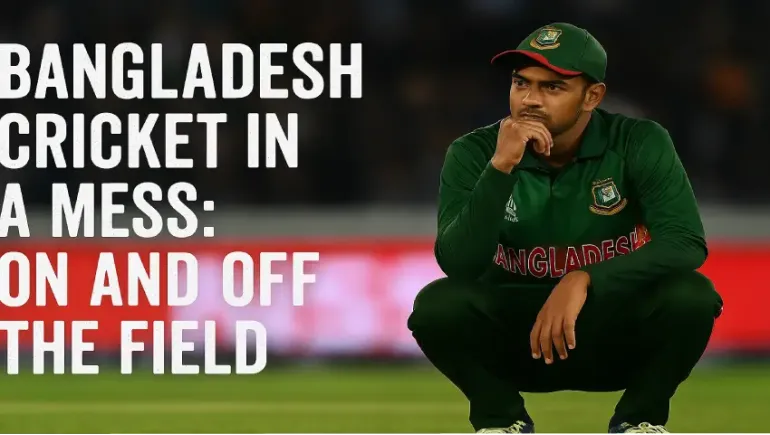
Bangladesh cricket is currently at a crossroads, facing serious challenges both on the pitch and behind the scenes. Once seen as a promising cricketing nation with passionate support and a talented player base, recent developments have cast a shadow over its future. The national team’s inconsistent performance, administrative confusion, and internal controversies have created an environment of uncertainty that is affecting results and morale alike.
The Tigers’ recent form in international cricket has been disappointing. From early exits in major ICC tournaments to surprise defeats against lower-ranked teams, Bangladesh's performances suggest a lack of strategy and cohesion. The over-reliance on aging veterans, unclear batting orders, and questionable bowling combinations point to poor planning and execution. The absence of a long-term vision has turned what was once a competitive team into an unpredictable and often underperforming side.
Leadership instability has become a recurring issue. Frequent captaincy changes—often without clear communication—have disrupted team unity. Senior players are reportedly unhappy with board decisions, and the gap between experienced stars and emerging talents is widening. The lack of a strong, respected leader on the field has made it difficult to build momentum or instill confidence in the dressing room.
Off the field, the Bangladesh Cricket Board (BCB) has come under heavy criticism. Accusations of favoritism, inconsistent policies, and poor communication have plagued its reputation. The selection process is often seen as opaque, and coaching appointments appear politically motivated rather than performance-driven. Such internal chaos filters down to the team, making consistent progress nearly impossible.
Despite having a rich pool of young talent, Bangladesh has failed to create a proper pipeline to nurture future stars. Promising players from domestic cricket are either overlooked or mismanaged, while investment in facilities and coaching at the grassroots level remains insufficient. Without a structured development system, the gap between domestic and international cricket remains wide—and widening.
Cricket is a national passion in Bangladesh, and fans have always backed their team with unmatched enthusiasm. But with growing chaos and poor results, public trust is wearing thin. Social media is filled with criticism, and stadium attendance is declining. Unless changes are made swiftly, the bond between the team and its supporters risks permanent damage.
For Bangladesh cricket to recover, reforms must begin at the top. The BCB needs to prioritize transparency, accountability, and merit-based decisions. A clear developmental pathway for young cricketers, a stable leadership structure, and consistent support for both players and coaching staff are crucial. Only then can Bangladesh dream of returning to the competitive heights it once threatened to reach.



-112x63.27.webp)




-132x74.57.webp)



Comments
There are no comments for this Article.